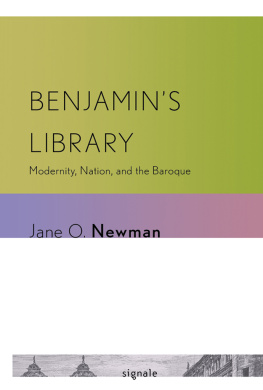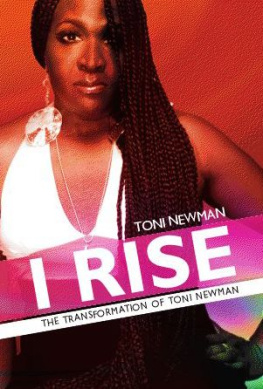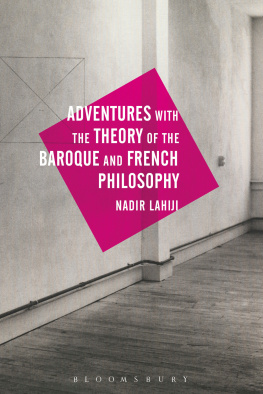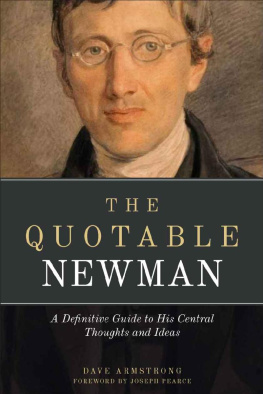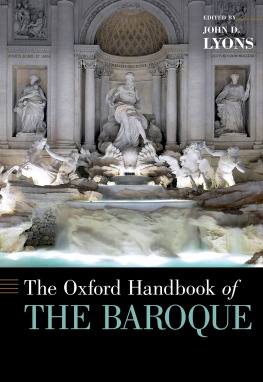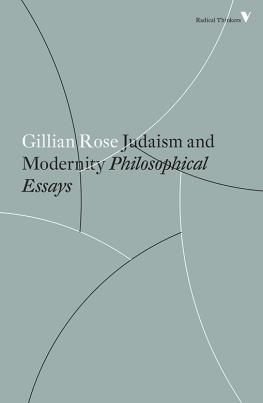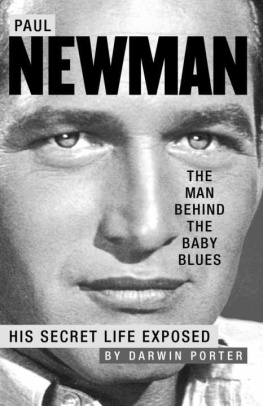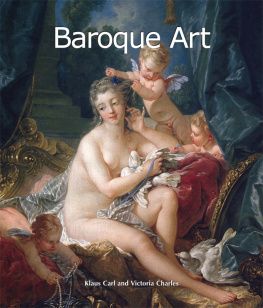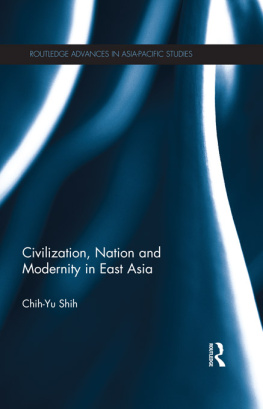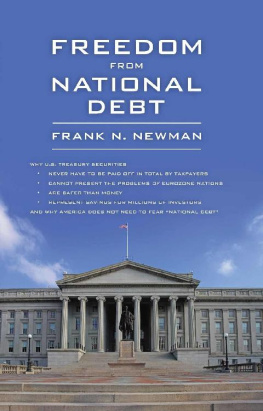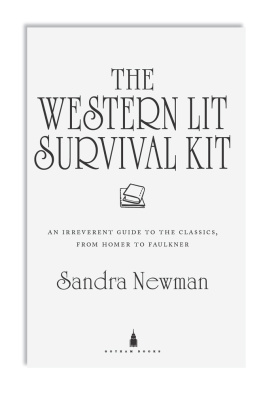JANE O. NEWMAN - Benjamins library: modernity, nation, and the Baroque
Here you can read online JANE O. NEWMAN - Benjamins library: modernity, nation, and the Baroque full text of the book (entire story) in english for free. Download pdf and epub, get meaning, cover and reviews about this ebook. publisher: CORNELL UNIVERSITY PRESS AND CORNELL UNIVERSITY LIBRARY, genre: Art. Description of the work, (preface) as well as reviews are available. Best literature library LitArk.com created for fans of good reading and offers a wide selection of genres:
Romance novel
Science fiction
Adventure
Detective
Science
History
Home and family
Prose
Art
Politics
Computer
Non-fiction
Religion
Business
Children
Humor
Choose a favorite category and find really read worthwhile books. Enjoy immersion in the world of imagination, feel the emotions of the characters or learn something new for yourself, make an fascinating discovery.
- Book:Benjamins library: modernity, nation, and the Baroque
- Author:
- Publisher:CORNELL UNIVERSITY PRESS AND CORNELL UNIVERSITY LIBRARY
- Genre:
- Rating:4 / 5
- Favourites:Add to favourites
- Your mark:
- 80
- 1
- 2
- 3
- 4
- 5
Benjamins library: modernity, nation, and the Baroque: summary, description and annotation
We offer to read an annotation, description, summary or preface (depends on what the author of the book "Benjamins library: modernity, nation, and the Baroque" wrote himself). If you haven't found the necessary information about the book — write in the comments, we will try to find it.
Benjamins library: modernity, nation, and the Baroque — read online for free the complete book (whole text) full work
Below is the text of the book, divided by pages. System saving the place of the last page read, allows you to conveniently read the book "Benjamins library: modernity, nation, and the Baroque" online for free, without having to search again every time where you left off. Put a bookmark, and you can go to the page where you finished reading at any time.
Font size:
Interval:
Bookmark:
While this book had its beginning and its end in Benjamins city of Berlin, no book is ever really written in one place. Rather, it emerges in the extended conversations with the people with whom one works and lives, on the one hand, and in the encounters with the books, projects, and institutions that one has as one writes, on the other.
In the case of Benjamins Library, many of these conversations and encounters of course did occur in Berlin, and I am indebted to both individuals and institutions there for the material and intellectual help they have afforded me over the years. In particular, I would like to thank Peter-Andr Alt and Hans Feger of the Freie Universitt, Conrad Wiedemann of the Technische Universitt, and also my longtime friend, Wilfried Barner of the Universitt Gttingen, who was the one who got me interested in the Baroque to begin with and who was generous enough to meet with me when he was in Berlin. I also first met Uwe Steiner (Rice University) in Berlin many years ago and have admired his work on Benjamin since. Another longtime friend, Ulrich Joost (Universitt Darmstadt), made time to see me whenever we intersected in Berlin, and also never complained when I shot off an e-mail asking him to help me with locating arcane books and information (and also never disappointed me in finding out what I needed to know). Ursula Marx and Erdmut Wizisla of the Walter Benjamin Archiv, Akademie der Knste, Berlin, and the staff of the Preuische Staatsbibliothek at both Unter den Linden and Potsdamer Strasse, Berlin, especially Robert Giel and Eva Rothkirch of the Abteilung Historische Drcke, were more than helpful in locating many of the materials used in this book, as were the librarians at the Herzog August Bibliothek (Wolfenbttel), who even went so far as to get several volumes of Ulricis Shakespeare edition out of a display case in an exhibit so that I could check some quotes. Not to be forgotten are the many intellectually generous and energetic colleagues at the Zentrum fr Kultur- und Literaturforschung in Berlin, including Sigrid Weigel, Carlo Barck, Daniel Weidner, and last, but not at all least, Martin Treml. Finally, it goes without saying that this book could not have been written in Berlin or at all if it had not been for the hospitality of Klaus Burghard and Jutta Beversdorff-Burghard, who opened up their home and their lives to me and my family any number of times.
On the other side of the pond: I engaged in much of the thinking and writing of this book in both southern and northern California at the University of California, Irvine, and during a guest semester at the University of California, Berkeley. At Irvine, it is difficult to know whom to thank first, and thus I simply list alphabetically the names of colleagues (some of whom have since moved on to other institutions) who were crucial in helping me puzzle through Benjamin and the conundrums of academe over the years, including Kai Evers, Alex Gelley, Susan Jarratt, Adriana Johnson, Ketu Katrak, Karen Lawrence, Steve Mailloux, Ngugi wa Thiongo, David Pan, Jim Porter, Mark Poster, Amy Powell, Leslie Rabine, Nasrin Rahimieh, Annette Schlichter, Vicky Silver, and Uli Strasser. My friend and colleague Julia Lupton is in a category of her own; her intellectual elegance, deep fund of canny insights into the cultures of the present and the past, and seemingly limitless energy provide inspiration in abundance. And my life and work and thought would not be anything without the intellectual, moral, and emotional support offered by my colleague and partner in most things, John H. Smith. Our son, Julian, whose intelligence and kindness prove that the next generation will always be the better one, has been and continues to be a gift and endless source of amazement and delight.
My semester teaching at Berkeley represented a real watershed in my thinking. For the invitation to do so, I thank Eric Naiman and Kathy McCarthy. For providing the conditions of great intellectual excitement and a cohort of deeply learned friends at Berkeley both before and during that semester and since, I thank especially Tim Hampton, Vicky Kahn, and Jonathan Sheehan, learned colleagues and friends all, as well as Tom Brady, Tony Cascardi, and Niklaus Largier. As in Berlin, so too in Berkeley, finally, its where you live that matters. Linda Williams and Paul Fitzgerald were generous hosts, stimulating intellectual roommates, and good cooks.
Other colleagues in Europe and the United States have contributed to my thinking about the issues I address in this book in any number of different ways. They are Kathleen Biddick (Temple University), Hall Bjornstad (Indiana University, Bloomington), Chris Braider (University of Colorado), Dan and Mria Brewer (University of Minnesota), David Damrosch (Harvard University), Page duBois (UC San Diego), Marty Elsky (CUNY Graduate Center), Sander Gilman (Emory University), Sabine Glz (University of Iowa), Tony Grafton (Princeton University), Graham Hammill (SUNY Buffalo), Peter Uwe Hohendahl (Cornell University), Katherine Ibbett (University of London), Michael Jennings (Princeton University), John Lyons (University of Virginia), Hlne Merlin (Paris 3Nouvelle Sorbonne), Andy Rabinbach (Princeton University), David Sabean (UCLA), Gerhild Scholz-Williams (Washington University, St. Louis), Peter Schwartz (Boston University), Sonia Velazquez (Princeton University), Martin Vialon (Yediteppe University, Istanbul), Sam Weber (Northwestern University), Christopher Wild (University of Chicago), and Irving Wohlfahrt. Thanks to you all.
Finally, I am grateful to a generation or two of graduate students (some now colleagues) in my seminars at UC Irvine and Berkeley for their commitment to helping me follow through on the links Benjamin saw between the early modern period and his own time. These students and colleagues include but are not limited to Matt Ancell, Francie Crebs, C. J. Gordon, Elizabeth Kuehn, Nichole Miller, Glenn Odom, Jen Rust, Melissa Sanchez, Gina Shaffer, Robin Stewart, Jeff Wilson, and Catherine Winiarski. Several talented undergraduates (most now engaged in and completing graduate study) accompanied me on this journey as well, including Jamie Carter, Katie Farrar, Jessie Henry, Kristine Noone, Catherine Nguyen, Rachel Schaffer, Alana Shilling, Jenny Sohn, and Martin Vega.
For financial support that allowed me time to engage in the bibliographic sleuthing central to this project as well as time to write, I acknowledge the Fulbright Foundation, the Humboldt Stiftung, the Simon Guggenheim Foundation, and the University of California, Irvine School of Humanities Committee on Research and Travel and the Humanities Center/Humanities Collective. Rivka Plesser and Ety Alagem of the Jewish National and University Library, The Hebrew University, Jerusalem, and the staff of the Interlibrary Loan Department, Langson Library, UC Irvine, were heroic in their efforts to help me find various editions of texts. Claudia Wedepohl of the Warburg Institute Archives at the Warburg Institute in London was a knowledgeable guide through some very difficult-to-decipher materials written in Warburgs difficult hand.
As is the case in any book a long time in the making, some parts have been published in earlier versions. Parts of the preface and chapter 1 appeared in Periodization, Modernity, Nation: Benjamin between Renaissance and Baroque, Journal of the Northern Renaissance 1.1 (2009): 2741. Parts of chapter 3 appeared in Hamlet ist auch Saturnkind: Citationality, Lutheranism, and German Identity in Walter Benjamins Ursprung des deutschen Trauerspiels, Benjamin Studien 1 (2008): 17188; and in Enchantment in Times of War: Aby Warburg, Walter Benjamin, and the Secularization Thesis, Representations 105 (2009): 13367. Parts of the conclusion appeared in Baroque Legacies: National Socialisms Benjamin, Nazi Germany and the Humanities, ed. Anson Rabinbach and Wolfgang Bialas (Oxford: Oneworld Press, 2007), 23866. All reappear here with permission. The final product came to fruition thanks to the good stewardship of Kizer Walker (Cornell University), managing editor of the Signale series, and Marian Rogers, whose editing skills saved me from numerous infelicities. I would also like to thank Kate Mertes for preparing the index.
Font size:
Interval:
Bookmark:
Similar books «Benjamins library: modernity, nation, and the Baroque»
Look at similar books to Benjamins library: modernity, nation, and the Baroque. We have selected literature similar in name and meaning in the hope of providing readers with more options to find new, interesting, not yet read works.
Discussion, reviews of the book Benjamins library: modernity, nation, and the Baroque and just readers' own opinions. Leave your comments, write what you think about the work, its meaning or the main characters. Specify what exactly you liked and what you didn't like, and why you think so.

